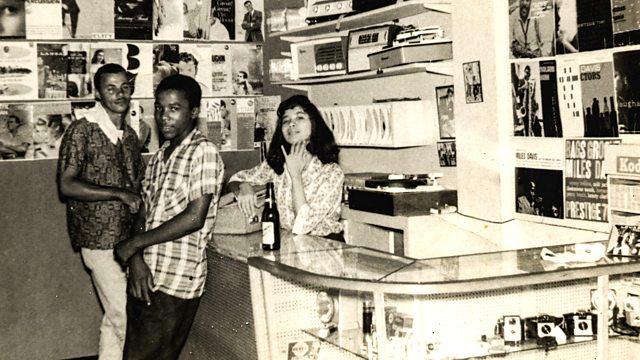If there was ever a documentary that needed you to have good speakers on your TV setup – or good headphones if you're watching on computer or tablet – this is it. It maybe goes without saying that reggae needs good bass reproduction to appreciate, and in the case of this one the constant pulse of classics and obscurities was absolutely vital to the structure of the piece. It is such a well constructed film that it almost works as a piece of music in its own right, the basslines interweaving with endless bravura Jamaican anecdotalising to create a steady, intoxicating flow of impressions and events.
The story is, in some ways, simple. In the late 1950s Chinese-Jamaicans Vincent “Randy” Chin and his new wife Patricia started selling records for jukeboxes across the islands. They started a sideline in selling the old used records from a cart, then a store in downtown Kingston, which became successful enough to build a studio upstairs. The synergy between the two – the store in which Vincent and “Miss Pat” could gauge what was popular and even test out new releases, and the studio which had all the hottest musicians in mento, then ska, then reggae and dub hanging around the pavement outside in the hope of being picked for a session – was perfect, and Randy's Records aka Studio 17 became a hub for the explosion through the Sixties and Seventies of Jamaican music worldwide, with the Chins' oldest son Clive as a studio engineer under the tutelage of the great Errol Thompson.
The Chins moved to New York in the Eighties, driven away by the factional street violence of Kingston – but continued their involvement in reggae, forming the giant VP (Vincent & Pat) label and championing the new digital sounds of dancehall. Vincent died in 2007, but Miss Pat has continued at the helm of VP into her 80s. This film told this story, but halfway through it became the story of the archive of studio tapes that were left behind in the move to NYC. These were thought lost after the shuttered studio was flooded and looted following Hurricane Gilbert in 1988 – but incredibly in 2001, Clive found them and rescued them. For unexplained reasons, he never did anything with them, despite Joel's urging – but when Joel was murdered in Jamaica in 2011, he was driven to restore and digitise them. The second half of the film, then, became less history lesson and more family drama as the fate and ownership of the recordings was discussed.
The mastery here was that from the Fifties to the present day, the narrative just flowed along on those endless basslines, borne by that natural Jamaican way with a story. Along the way, major incidents of political turmoil and street violence cropped up as the backdrop to the story, and personal and artistic victories and tragedies came thick and fast, but none of this was presented as high drama. There were practically no grand revelations, no shock twists, just life being lived as some of the greatest music of the modern age was being made.
And it really is the greatest, as the calibre of talking heads in the film should suggest: Jimmy Cliff, Lee “Scratch” Perry, Sly Dunbar, Ernest Ranglin, Bunny Lee, King Jammy, the late Rico Rodriguez all provide vital memories, while the philosophical sorrow of Clive and the spark and steel of the remarkable Miss Pat provide the centre of the narrative. There was really nothing to fault here: it was the story of one of the most important musical connecting points of the modern world, the archive footage (including from fictionalised versions of Randy's in The Harder They Come and Rockers) outstanding, the sense of the small human stories that make up history constantly palpable, and for 85 minutes the pace was near perfect. Even if you're not a reggae lover, there was a lot to love here, but if you are, it's a treasure trove.















Add comment